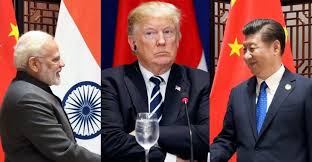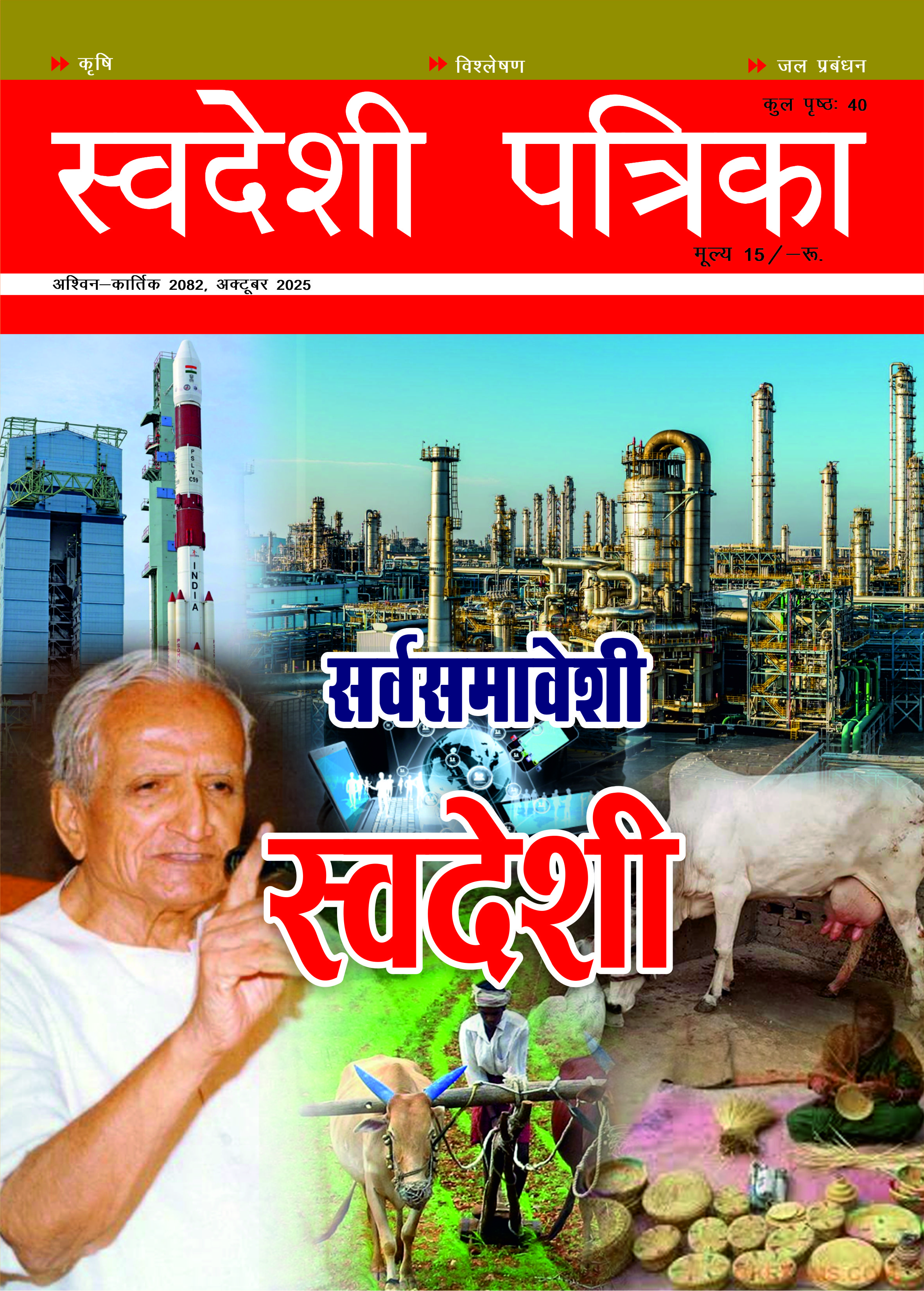
ABC of the world - America, Bharat and China
China is a closed wall, and hence, everything, whether that be good or bad, is opaque. The people of the United States and Bharat have a considerable responsibility to navigate the uncertain world. — Alok Singh
The drivers of geopolitics are catching and chasing their respective objectives. The United States of America is positioned around the MAGA slogan, i.e., Make America Great Again; Bharat aspires to achieve a vision of policies that will bring it to the status of a “Vikshit Bharat” by 2047; China is busy bridging the gap to be recognized as the ultimate superpower. The tools employed by America are trade tariffs, Bharat is marching for self-reliance, and China is looking for ways to save its turf.
The Americans aspire to dollar dominance; Bharat looks ahead to becoming a $30 trillion economy by 2047, and China projects itself as a $ 42 trillion economy by 2050. In recent years, China has surpassed the Japanese economy, achieving this milestone in 2010. There is a difference of opinion that when China overtook Japan in 2010, then Japan was also rising, and when Bharat overtook Japan in 2025, Japan was on the decline. It implies that our opponents satisfy themselves with the understanding that it’s Japan that is on the decline, and so there is nothing extraordinary for Bharat to celebrate. Such analyses are biased against us.
Comparing 2010 with 2025 is not justified. In 2010, both Japan and China were increasing economies, and in 2025, it is only India that is an increasing economy. Japan was aging rapidly in 2010, while China was relatively young at the time; today, China and Japan, along with the developed economies of the world, are struggling with the aging problem.
The demographic dividend that we have today and the dividend that we will have for the next few decades is an unmatched resource that we own. This resource is more valuable than the rare earth metals China currently owns, and China is leveraging it to negotiate trade deals, including with the United States.
The world is obsessed with compulsion and weaponization. This attitude of the leadership has a shelf life. It is reflected in the American’s behavior on trade tariffs, i.e., on-off, extension, and exception, and let’s see what next. It is the compulsion of the aging world to invest heavily in artificial intelligence, robotics, and automation that can replace the jobs typically expected of young people. We don’t have any such compulsions. We have many hands to be engaged and many products to offer, thanks to human intelligence, both to ourselves and to the world. The mindset of our youngsters needs to be choreographed and that’s our challenge.
We have a challenge to make our youth understand that we don’t need a ten-minute delivery app, whether it’s for food, groceries, or books. It’s a trap that needs to be arrested. These delivery apps need a high-density population to survive and, hence, are mostly non-existent in developed countries. These apps are an attack on our soft power, i.e., the way we eat, dress, and use products, whether that be personal care or home care. These apps conspire to control our thoughts, our minds, our traditional culture, and our purchase behaviour, whether that be goods or services.
We must distinguish between a Swadeshi and a Videshi app, not only in terms of ownership but also in terms of the products they offer. The due diligence of the impact of such products, whether goods or services, on our thought process, cultural practices, and the local economy needs to be taken into consideration. Ourselves had never been an individual-driven nation; we are a humanity-driven nation. The philosophy of Pandit Deendayal Upadhyaya Ji, integral humanism, should be the basis of our all-transactional behaviour, whether it involves buying or selling goods or services or utilizing hard power or soft power.
Our leadership believes in integral humanism, and hence, we have never weaponized our strengths in any negotiations. We offered free Covid 19 vaccines, we shared our unified payment interface (UPI) system with those willing to accept it, and the latest that we demonstrated to the world is in the infrastructure sector by constructing the world’s highest arch bridge in the most challenging terrain, i.e., Chenab bridge and the Operation Sindoor changed the attitude of the whole world towards our defence self-reliance.
Today, we have achieved food security and defence security; energy security is a work in progress. The alarming propaganda surrounding artificial intelligence, machine learning, and robotics in the household, manufacturing, or on the battlefield is not for us.
It is not scary for us, as whenever the next bout of war is fought, if ever, it will be by human intelligence and human strengths, not by artificial intelligence, drones, or satellites.
We need to conduct due diligence on the world in terms of technology, economy, taxation, data, food, energy, education, and all other aspects. But we need to carve our path. We don’t and shouldn’t copycat anything, whether that be products, goods, services, or both hard and soft power. We have to nurture what we are.
Our ideal trade policy is zero tariffs if it’s concerned with humanity. The COVID-19 vaccine proves this policy. Those who label us as a tariff king of international trade are innocent, ignorant, and transactional in their every conduct.
US President Trump’s time to be a third term president, he aspires to be the wealthiest person on earth through the disruptive technology of crypto business, competes to be nominated for the Noble Peace Prize, and consistently violates integrity to capture all the resources of the world whether that be currency dominance or rare earth metals or energy. An individual’s aspirations can’t be camouflaged with MAGA.
The world eagerly awaits the midterm for the US president. America and India are the largest practicing democracies in the world. The current union government is functioning on a reduced majority in Bharat. China is a closed wall, and hence, everything, whether that be good or bad, is opaque. The people of the United States and Bharat have a considerable responsibility to navigate the uncertain world.
(Alok Singh has a doctorate in management from the Indian Institute of Management Indore and promoter of Transition Research Consultancy for Policy and Management.)


